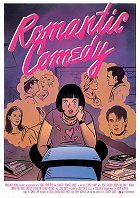Ohjaus:
Elizabeth SankeyKäsikirjoitus:
Elizabeth SankeySävellys:
Jeremy WarmsleyJuonikuvaukset(1)
Viehättävä dokumentti yleisön suosimista, mutta kriitikoiden hylkimistä romanttisista komedioista. Sadat videoklipit tunnetuimmista "romcomeista" ja elokuvantekijöiden. kertomukset vievät aikamatkalle rakkauden, romanssien ja parisuhteiden maailmaan. Stereotypioihin nojaavassa lajityypissä on viime vuosina nähty myös poikkeavia henkilöhahmoja ja tarinoita. (YLE)
(lisää)Arvostelut (1)
Even though Romantic Comedy begins with a concise, sociocultural context allowing for a historical overview rather than a full-fledged documentary about romantic comedies in the broader context, it is a subjective audio-visual essay through which the director clarifies her own attitude to various Hollywood clichés and stereotypes that distort our ideas about love and relationships. Elizabeth Sankey does not strive for impartiality; the tension between a weakness for genre conventions and the pursuit of critical distance is reflected by the chosen form, where sardonic analyses of selected titles are interspersed with humorous or touching compilation sequences that remind us why it is so easy to be drawn in by these films. With a detached view, the (re)interpretations of romantic comedies from recent decades are more convincing than looking to the past, when a whole decade or cycle of films is characterised by a simple, brief phrase (emancipated heroines in the 1930s x subjugated women after the war, Marilyn Monroe’s sexuality x Doris Day’s asexuality). With a sober reading, the schmaltzy While You Were Sleeping becomes a horror movie about a woman obsessed with a stranger in a coma, Love Actually is a film in which Keira Knightley gives preference to her white stalker and the protagonist of The Last Kiss succeeds through aggressive manipulation and pressure. Even though the filmmaker frequently simplifies and picks details out of the whole to support her argument, she also succeeds in drawing attention to rather unhealthy repetitive patterns (emotional men tend to be fragile and cute, emotional women are hysterical, women devoted to their career instead of a relationship often seem awkward, love and easily attainable sex are mutually exclusive and the desire for mere satisfaction of physical needs makes a woman a whore, female characters often only reflect what a man is going through – with the exception of homosexual friends, who conversely only add more dimensions to the female protagonist…). As a result, you probably will not stop liking your favourite films, but you will watch them with a bit more scepticism, which is not a bad thing. 65%
()
Kuvagalleria (2)
Kuva © Česká televize

